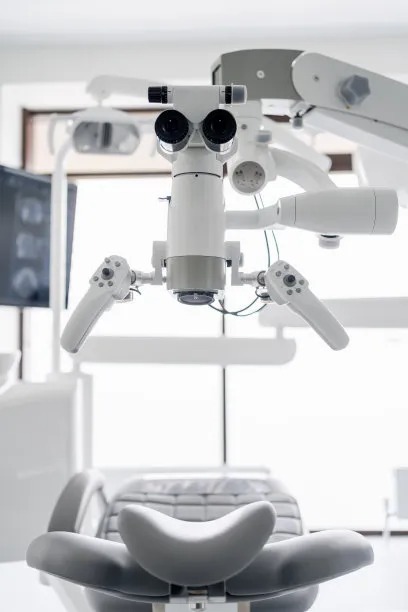Summary: Extracting a tooth is a procedure that requires careful consideration and expertise to ensure optimal dental health and healing. This essential guide outlines the key aspects of safe and effective tooth extraction, emphasizing the importance of preparation, procedure, aftercare, and potential complications. Following these guidelines will enhance the overall experience, leading to smoother healing and a lower risk of issues. By understanding the intricacies of tooth extraction, patients can feel more empowered and informed, making the process less daunting and more successful.
1. Importance of Proper Preparation for Extraction

Before any tooth extraction, proper preparation is crucial. This preparation includes thorough medical history reviews and detailed consultations with a dental professional. Patients should disclose any underlying conditions, medications, or allergies that may impact the procedures outcome. Understanding the patients dental history helps the dentist devise a tailored approach, ensuring that all necessary precautions are taken.
Another key aspect of preparation is the use of diagnostic imaging. X-rays can provide valuable insights into the tooths position, root structure, and surrounding bone density. This information enables the dentist to anticipate any challenges that may arise during the extraction and plan accordingly, minimizing the chances of complications.
Patients should also prepare mentally and physically for the procedure. Being well-rested and relaxed can significantly impact the overall experience. Patients are encouraged to follow any pre-operative instructions provided by their dentist, such as dietary restrictions or medication adjustments, to ensure that everything goes smoothly on the day of the extraction.
2. Safe and Effective Tooth Extraction Techniques
A safe and effective tooth extraction involves several precise techniques, and the choice of method often depends on the tooths condition and location. For straightforward extractions, local anesthesia is typically administered to numb the area. Dentists may use specialized instruments, such as elevators and forceps, to gently remove the tooth while minimizing trauma to surrounding tissues.
In the case of impacted teeth or more complicated extractions, surgical methods may be necessary. Here, the dentist may make incisions in the gum tissue to gain access to the tooth. This approach requires additional care to avoid damaging nearby nerves or bone. The surgical technique is tailored to the individual situation to achieve the best outcomes.
Throughout the extraction, maintaining a sterile environment is critical to prevent infection. Dentists employ strict infection control procedures, including the use of gloves, masks, and sterilized instruments. Ensuring a clean and safe setting significantly reduces the potential for post-operative complications, contributing to optimal healing.
3. Post-Extraction Care for Smooth Recovery
After a tooth extraction, proper aftercare is essential for ensuring smooth recovery and minimizing complications. Patients are typically given specific instructions, which may include resting for a day, applying ice packs to reduce swelling, and taking prescribed medications to manage pain and prevent infection.
Dietary adjustments also play a vital role in post-operative care. Patients are advised to consume soft foods and avoid hot, spicy, or crunchy items for several days. Staying hydrated is equally important, but patients should avoid using straws, as the suction can dislodge blood clots and lead to dry socket, a painful condition that can complicate recovery.
Regular follow-up appointments with the dentist are important to monitor healing and address any concerns. Its crucial for patients to know the signs of potential complications, such as excessive bleeding, severe pain, or signs of infection, and to seek assistance if they arise. Following these guidelines will lead to a more comfortable and successful recovery.
4. Recognizing and Addressing Potential Complications
While tooth extractions are generally straightforward procedures, complications can arise. One of the most common issues is dry socket, which occurs when the blood clot at the extraction site dislodges, exposing bone and nerves. Patients should be educated about the symptoms, which include increased pain and a foul taste in the mouth, so they can seek prompt treatment.
Infection is another serious potential complication following tooth extraction. Signs of infection may include swelling, fever, and pus discharge. Patients must be vigilant and report these symptoms to their dentist as soon as they appear. Early intervention can prevent more severe health issues and ensure a quicker recovery.
Additionally, patients who receive anesthesia must be aware of potential reactions. While rare, some individuals may experience allergic reactions or adverse effects from anesthesia. Dentists should thoroughly discuss any concerns about anesthesia before the procedure, ensuring patients are well-informed and prepared.
Summary:
In conclusion, this essential guide highlights the importance of effective preparation, the actual tooth extraction techniques, post-operative care, and an understanding of potential complications. Armed with this knowledge, patients can navigate the tooth extraction process with confidence, taking steps toward optimal dental health and healing.
This article is compiled by Vickong Dental and the content is for reference only.
Vickong Dental
Vickong Dental is a large medical group established in Hong Kong in 2008 by professors from well-known medical universities in Guangdong and Hong Kong, as well as medical doctors from key national '985' universities (including Master's supervisors and senior professors). The chain of branches brings together expert dentists with PhDs and Master's degrees from Hong Kong and Mainland China, committed to providing high-quality dental treatment.
"Vickong Dental Practices the University Motto of 'Healing and Serving Society,' with a Stable Operation for Sixteen Years. It Has Been honored with Hong Kong Enterprise Leaders's Choice,' and is a Global Trusted Implant Center for the Nobel Implant System. Recommended by Hong Kong Metro Broadcast and Guangdong Television, it Serves Customers from Over Thirty Countries and Regions, Gaining the Trust and Favor of Citizens from the Guangdong-Hong Kong-Macau Greater Bay Area and Surrounding Cities.

Thousands of customers' unanimous praise
The most recognized and highly recommended dental service by customers in the Guangdong-Hong Kong-Macau Greater Bay Area
We Ensure You Receive Detailed Care and Attention Here
Hong Kong standards, Shenzhen prices, Your Trusted English-speaking dentists

Vickong Dental Medical-Grade Instrument Disinfection Process
Vickong Dental Medical-Grade Instrument Disinfection Process

Vickong Dental Chain: A Warm and Comfortable Environment for Treatment






Appointment Hours

Q&A
Why choose Vickong Dental?
Vickong Dental practices the university motto 「Medicine to Benefit Society」, with each branch bringing together highly qualified dentists with doctoral and master’s degrees from Hong Kong and the Mainland, and has maintained seventeen years of steady operation。Recipient of 「2024 Hong Kong Enterprise Leaders Brand」, 「2025 Hong Kong Enterprise Leaders Brand」, a Nobel Biocare Global Trusted Implant Center, and a brand recommended by Metro Radio Hong Kong and Guangdong TV。
To date, we have served customers from more than thirty countries and regions,earning exceptionally high word-of-mouth recognition and trusted recommendations from residents across the Guangdong-Hong Kong-Macao Greater Bay Area and surrounding cities
We have eight major branches in Zhuhai、Shenzhen,and a consultation and service assurance center in Hong Kong,so you can book a free consultation at any time for any questions,which is very reassuring.
If I do not accept the quotation after the CT scan, will I be charged??
No! As long as the actual treatment has not started, you will not be charged any fees.
Will there be any additional charges during the treatment process?
No, there won’t be any additional charges. Before treatment begins, we will clearly explain the treatment plan and its corresponding fees. Only after the patient agrees and signs the consent form will we proceed with the dental service.
Can I pay in Hong Kong dollars?
Yes. Vickong Dental accepts payment in Hong Kong dollars. The amount will be converted based on the exchange rate of the day, and the applicable rate will be clearly communicated to you in advance.
Can I reschedule my appointment at any time?
Yes. Please contact us via **WeChat** or **WhatsApp** as early as possible, providing your original appointment time and details, along with your preferred new date and time slot for rescheduling.













